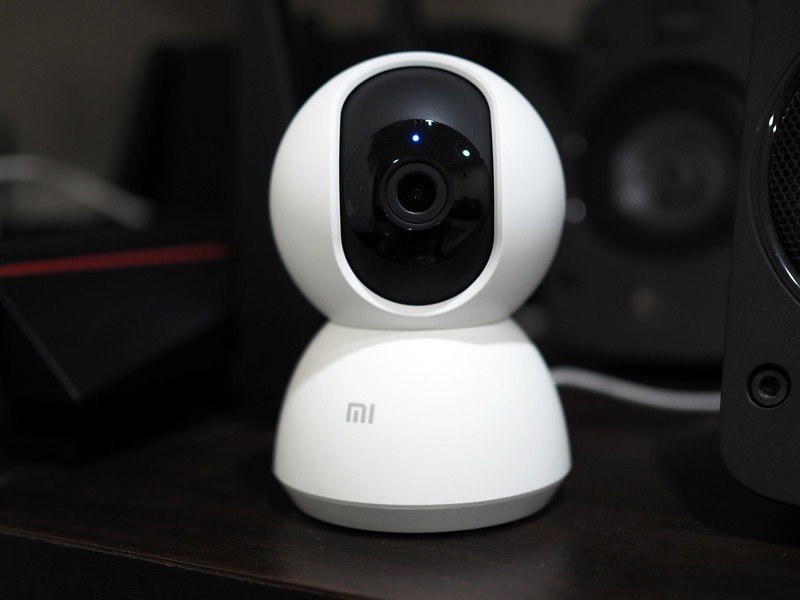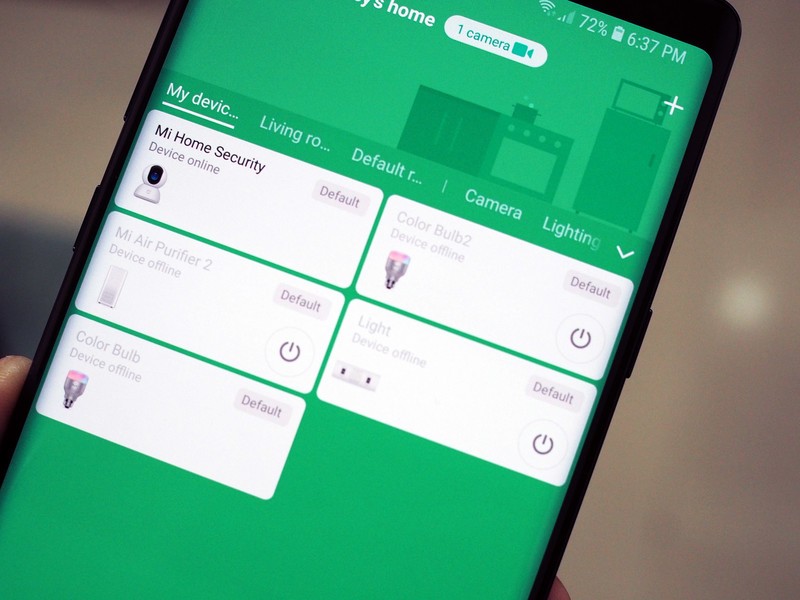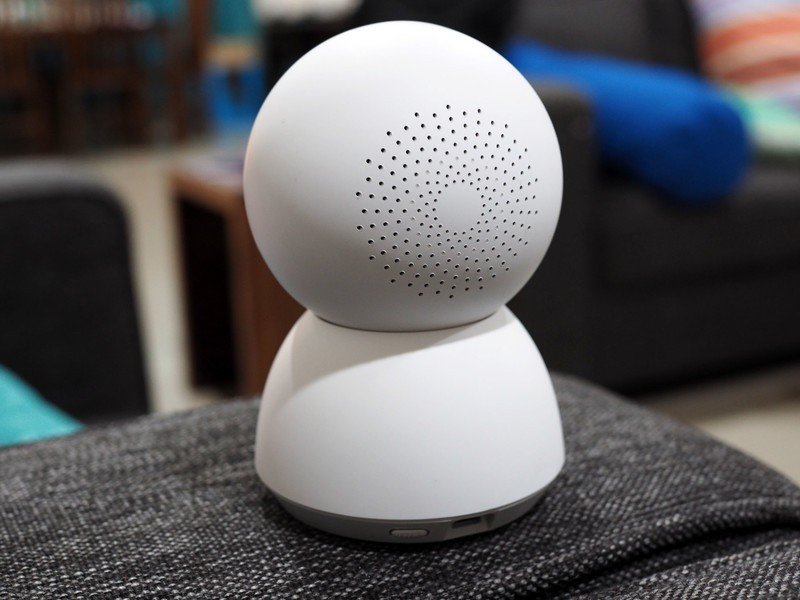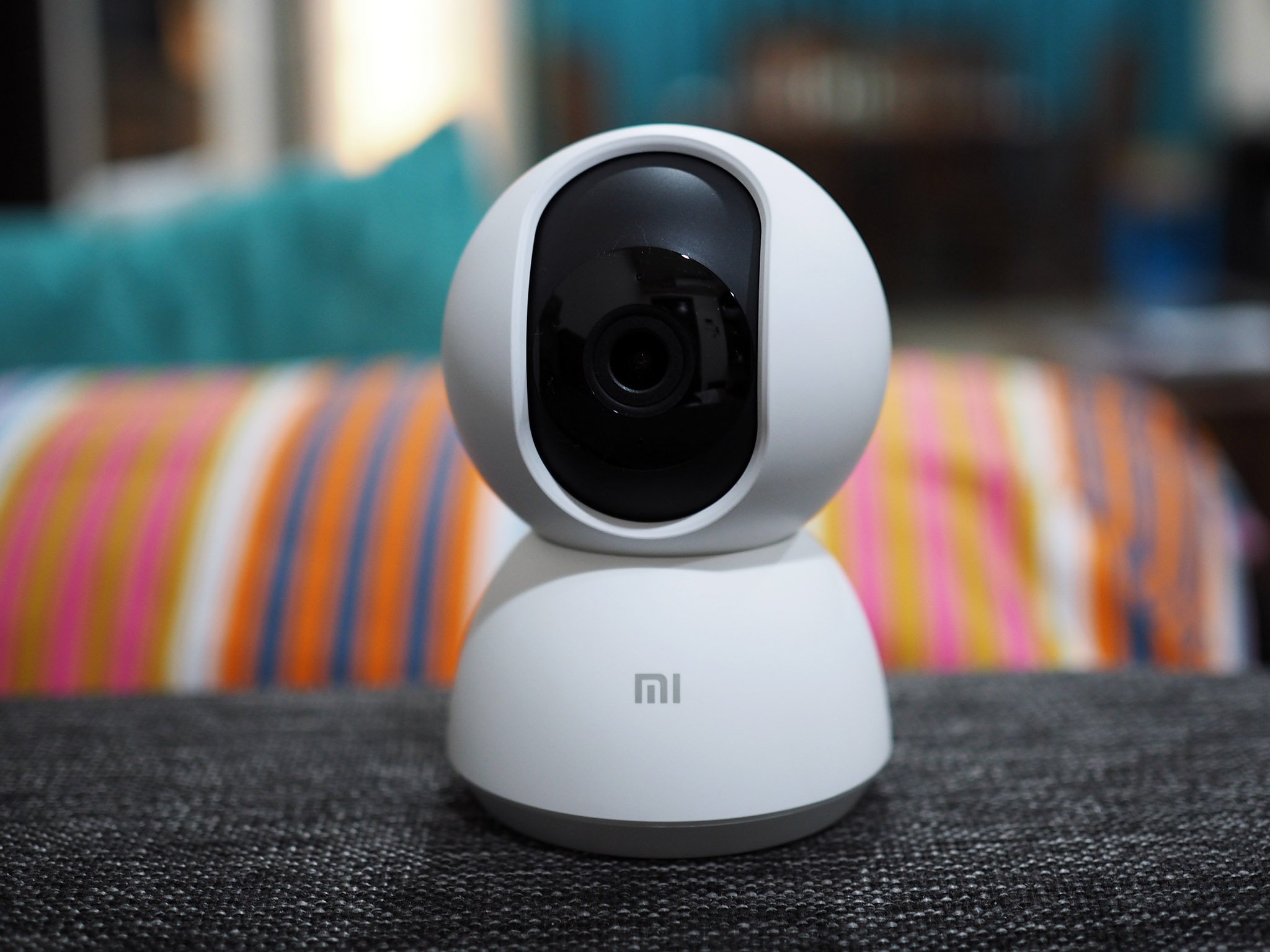There's no shortage of affordable security cameras, but Xiaomi's offering in this category stands out for the sheer number of features it packs in. Xiaomi's smart home portfolio is diverse, with the manufacturer selling everything from scooters to robot vacuums, water and air purifiers, and smart kettles. Like the rest of the products in the smart home ecosystem, the Xiaomi Mi Home Security Camera 360 ties into the Mijia label, and can be configured using the Mi Home app.
Another trait it shares with other Xiaomi products is affordability — at under $50, you're getting great value for your money. With the security camera now officially up for sale in India, let's take a look at what's on offer.
Pros:
- 1080p video recording
- Real-time monitoring
- Motion detection works well
- Night vision mode
- Intercom feature
Cons:
- Installation is laced with issues
- microSD slot maxes out at 64GB
Mi Home Security Camera 360 What I like

As with all Xiaomi smart home products, the Mi Home Security Camera 360 is packed with features. The camera rotates 360 degrees, and it tilts up and down by 45 degrees. You can put the camera on a flat surface or mount it to the wall using the provided wall fixture.
You'll be able to monitor the feed from the camera in real-time, and it also has a built-in mic that lets you listen to any audio the camera picks up. There's a virtual D-pad that lets you move and pan the camera from your phone, and you can select the video quality and start recording footage directly from within Mi Home. The Mi Security Camera 360 has a microSD slot as well that lets you record and store up to two full days' worth of footage.
For $50, you get real-time monitoring, a 24-hour surveillance mode, and IR LEDs that enable night vision.
The biggest reason to be excited about the Mi Home Security Camera 360 debuting outside of China is that the interface elements are all in English. I picked up the previous iteration of the camera a few years ago, and it was a hassle to use as the UI was in Mandarin. That is no longer an issue.
There's a nifty home monitoring feature that activates the camera whenever it detects motion. It'll record 10 seconds' worth of footage and send a push notification to your phone alerting you of the activity. It's sensitive enough that it picks up motion anywhere in the camera's field of view, and it worked without any hassles. You can set up the feature so it works during the day or night, or even a custom schedule.
One particular feature I like is the night vision mode. The Mi Home Security Camera 360 has 10 IR LEDs that allow it to detect motion up to 9 meters away even at night. The Mi Home app also offers a call feature that essentially works as an intercom. You'll be able to dial into the camera, and it'll broadcast your voice via the built-in speaker.
Mi Home Security Camera 360 What needs work

My main issue with the Mi Security Camera 360 is the installation process. As the device is a part of the Mijia ecosystem of products, you'll need to download the Mi Home app. The app needs a lot of permissions as it updates the firmware of individual products without the intervention of the Play Store. Xiaomi rolls out consistent updates to its smart home products, and Mi Home automatically downloads and installs them.
For installing the Mi Security Camera 360, I initially connected to the India server, but that failed to detect the camera. After trying to add the device manually for five minutes, I switched to the India (Asia) server, and the security camera was finally visible. This is another area where the Mi Home falls short — product availability varies based on the region. I was using the Chinese server for the longest time as I had a lot of products that weren't available in other markets, and even though I set the language to English, a lot of the interface elements are in Mandarin.
Installing a security camera should not be this difficult.
Once the Mi Security Camera 360 shows up in the nearby devices tab, you pair it with your home Wi-Fi network. Then you'll have to hold up a QR code that shows up on your phone in front of the camera, and register it with your Mi account.
I had issues on this front as well, and had to ultimately reset the camera thrice before it paired. The first time, the camera failed to find my Wi-Fi network, and it was constantly timing out. A reset allowed it to find my network, but it wouldn't connect. It connected to my home Wi-Fi network after the second reset, but it didn't sync to my Mi account.
A third reset finally got things working, and it took just over 30 minutes to set up the Mi Security Camera 360. Not ideal for a device that's meant to seamlessly connect to your home Wi-Fi. There is a quick setup option wherein you'll be able to scan the QR code provided on the manual to register the Mi Security Camera 360 within Mi Home, but that didn't work for me. All I got was an error stating that the QR code failed to register.
So if you're looking to pick up the Mi Security Camera 360, know that you'll have to put up with the Mi Home app's quirks during initial configuration.
Mi Home Security Camera 360 Review

Overall, the Mi Home Security Camera 360 has plenty to offer. The feature-set is exhaustive, and barring the issues I faced during initial configuration, the camera worked flawlessly.
There are better options available for those in Western markets, but that isn't the case in countries like India, where the security camera market is still in its infancy. Xiaomi is effectively getting in on the ground floor, and by offering the camera at an attractive ₹2,699, it is setting the tone for this segment. The camera is set to go on sale in the country starting October 10, and you'll be able to pick it up from Mi Home stores and Amazon.
Xiaomi says it didn't want to offer a cloud service that backs up data for a monthly fee as that isn't in line with its interests in the market, and that statement makes sense considering the brand is eyeing the budget segment. The surveillance features combined with motion detection and night vision mode make the Mi Home Security Camera 360 an enticing option.
4 out of 5
Xiaomi's 360-degree security camera ticks all the right boxes when it comes to an affordable home monitoring solution. The installation needs a bit of work, but aside from that, you're getting a lot of value for your money.

Harish Jonnalagadda is Android Central's Senior Editor overseeing mobile coverage. In his current role, he leads the site's coverage of Chinese phone brands, networking products, and AV gear. He has been testing phones for over a decade, and has extensive experience in mobile hardware and the global semiconductor industry. Contact him on Twitter at @chunkynerd.

